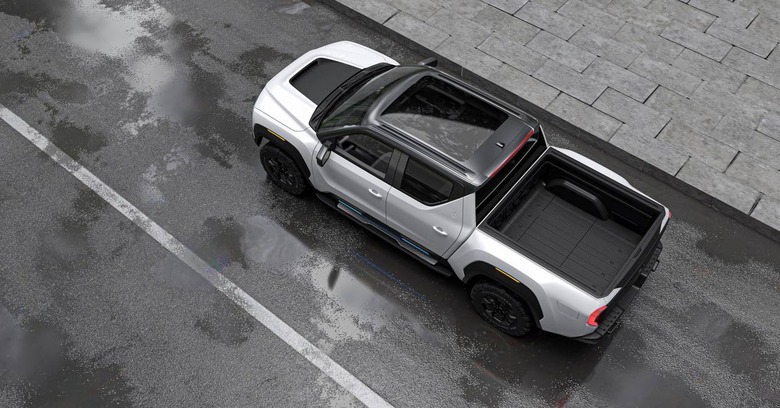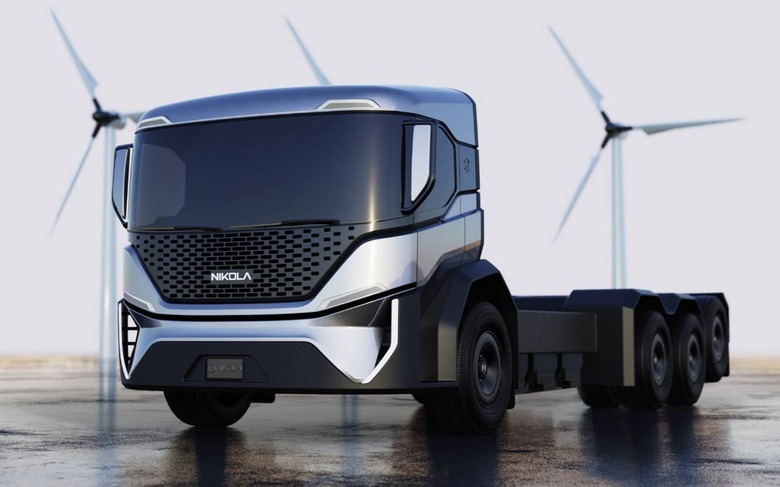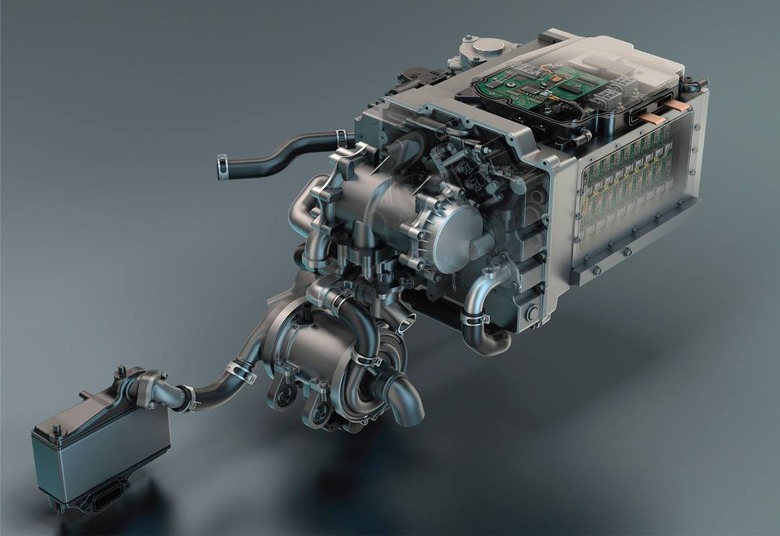Nikola Badger EV Pickup Axed As GM Deal Trimmed To Hydrogen Semi-Truck Tech
Nikola Motors has pulled the plug on the Badger pickup, ending development of the hydrogen-electric truck and promising to refund all customer deposits. The startup had hoped to take on Tesla and the Cybertruck with its electrified pickup, but widespread controversy and a revamped deal between Nikola and General Motors has killed the idea off.
The Badger was to be one of the more flexible approaches to electrifying a pickup truck that we've seen. Nikola's plan was to offer two versions, one which would be entirely battery-electric, and another with a hydrogen fuel-cell system onboard. The latter could potentially drive up to 600 miles, Nikola suggested, as well as run worksite tools as a portable generator alternative.

Problem was, while Nikola had plenty of fancy renders of the EV, it didn't have a manufacturing partner. That, the company had confirmed, would be outsourced to another automaker, and a deal with GM announced in early September 2020 gave the Badger a heavyweight partner. GM, the agreement said, would use its Ultium EV platform for the truck, just as it will for the GMC Hummer EV, Cadillac Lyriq, and an upcoming – and as-yet unnamed – Chevrolet electric pickup.
Since then, however, things took a downward turn. Controversy bloomed around Nikola founder Trevor Milton, with accusations that he had misled investors and over-exaggerated the capabilities of the startup's drivetrain and other technologies. Milton left Nikola on September 20, amid chatter of a potential SEC and DoJ securities fraud investigation.
Coming so closely on the heels of the initial GM deal announcement, the lingering question had been just what would happen to the deal. Now, in a new non-binding Memorandum of Understanding (MOU), the updated terms have been revealed. It "supersedes and replaces the transaction announced on September 8, 2020," Nikola confirms, shifting the focus to the automaker's planned hydrogen fuel cell Class 7/8 semi-trucks.

They've arguably been Nikola's primary focus, with Badger a consumer distraction along the way. As per the new MOU, Nikola and General Motors will work on integrating GM's Hydrotec fuel-cell technology into Nikola's Class 7 and Class 8 semi-trucks, which it aims to sell to the medium- and long-haul trucking sector. Production-engineered prototypes of those vehicles are expected to go into testing by the end of 2021, Nikola says, with beta prototype testing in the first half of 2022.
GM Ultium will still potentially play a role, only not in a consumer EV. Instead, there's the possibility for it being used in those semi-trucks, presumably as a way to store excess power to improve overall efficiency and range.

Most notably, the talk of GM taking a $2 billion equity stake in Nikola Motors has now been discarded. Instead, the startup will be paying for what fuel-cell drivetrain tech it requires. "It is expected that the potential arrangement would be cost plus," GM said today, "and that Nikola would pay upfront for the capital investment for the capacity." An Ultium supply agreement would be negotiated at a later date.
"The MOU does not include the previously contemplated GM equity stake in Nikola or development of the Nikola Badger," Nikola confirms. "As previously announced, the Nikola Badger program was dependent on an OEM partnership. Nikola will refund all previously submitted order deposits for the Nikola Badger."
Nikola had been taking $250 to $5,000 deposits for the Badger, depending on configuration and drivetrain. The automaker had said that the pure-electric version of the pickup would be priced from $60,000 before EV incentives, while the fuel-cell version would be from $80,000.
